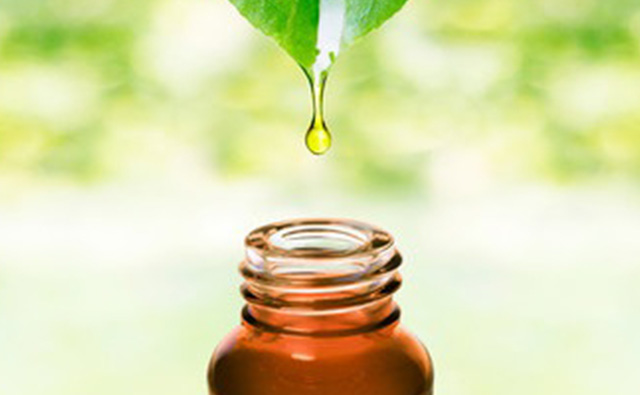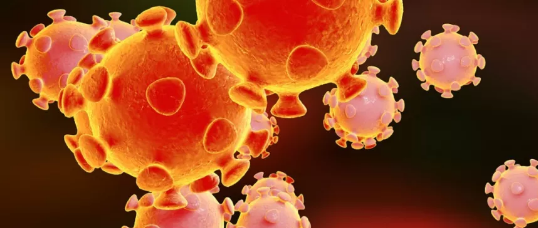Why do scholars study the antiviral envelope activity of essential oil from its antibacterial



The antibacterial properties of plant essential oils have been studied and applied in detail for a long time, but the research on their antiviral properties is too late and too few. Moreover, most of the studies mainly focus on the clinical application importance of enveloped viruses, while the research on the efficacy of non-enveloped viruses is very limited.
In general, non-enveloped viruses are more resistant to environmental conditions and antimicrobial agents than enveloped viruses.
In a study by Armaka et al. (1999), 1% concentrations of isoborneol and components of several plant essential oils showed antiviral activity against herpes simplex virus type 1 within 30 minutes of exposure.
Minami et al. (2003) study of 12 kinds of essential oils, such as tea tree, cypress, hackmatack and Ocimum basilicaum, mint, marjoram, eucalyptus, ravensara aromatic leaves, lavender, lemon, rosemary and lemongrass oil (Cymbopogon citratus), the antiviral effect of herpes simplex virus type 1, the concentration of 1% essential oil can be fully suppress the virus infection, but it has no effect on intracellular virus, among which lemongrass oil is the most effective, and can completely suppress virus infection by 0.1%.
Koch et al. (2008) found that fennel oil, along with thyme, hyssop, ginger, chamomile and sandalwood oil, also had inhibitory effects on herpes simplex virus type 2.
Loizzo et al. (2008) studied the antiviral activity of essential oils extracted from the berries and fruits of Lebanese plant species. They found that laurel oil had strong antiviral activity against SARS virus, while Thuja leaf oil (platycladus oil) and Juniper tar (acanthopanax tar) had moderate anti-SARS virus activity.
Garcia et al. (2010) evaluated the resistance of seven plant essential oils in Argentina to several envelope-containing viruses (herpes simplex virus type 1 and 2, dengue fever virus type 2, and Chenin virus), and found that Lantana grisebachii essential oil was the most effective antiviral.
Astani et al. (2011) compared the antiviral effects of star anise oil (containing approximately 80% phenylpropane-trans-anethole) and other phenylpropanoids and sesquiterpenes (trans-anethole, eugenol, beta eudesmol, farnesol (dodecatrienol), beta caryophyllene and caryophyllene oxide) against herpes simplex virus type 1. The results showed that star anise oil was the most effective, inhibiting the infection rate of virus up to 99%, followed by beta caryophyllene up to 98%, trans-anethole and farnesol up to 90%, and the inhibition rate of other compounds up to 60-90%. However, they found that star anise oil and other active ingredients direct effects on herpes simplex virus type 1, once the virus enters the cell, there is no antiviral effect, thus the authors speculate that these plant compounds may be: (1) the inactivated virus directly, (2) interfere with the virus envelope, or (3) necessary to block the virus adsorption or into the host cell structure of the virus.
Pilau et al. (2011) evaluated the antiviral effects of Mexican oregano oil and its main component carvacrol on several envelops viruses (herpes simplex virus 1, human respiratory syncytial virus, bovine herpesvirus 1, bovine herpesvirus 2, bovine herpesvirus 5 and bovine viral diarrhea virus). The results showed that oregano oil had no inhibitory effect on herpesvirus type 1 and type 5, but had an inhibitory effect on other viruses, and carvacrol had no effect on herpesvirus type 2. In addition, carvacrol is not as effective against other viruses as oregano oil, suggesting that other components in essential oil also have an effect against the viral activity. Other essential oils such as tea tree oil, eucalyptus oil, Australian tea tree oil, hassopus officinalis oil, thyme oil, manuka oil, oregano oil, ginger oil, sandalwood oil, and carvacrol, eugenol, and menthol have also been shown to have antiviral activity against herpes viruses.
The mechanisms of plant essential oils with antibacterial activity on bacterial cells include : (1) increasing the permeability of cell membrane by damaging cell wall, cell membrane and cell membrane proteins, leading to the leakage of cell contents; (2) solidify the cytoplasm; (3) reduction of proton dynamics; (4) key enzyme inactivation;(5) genetic disorders.
At present, the research on the antiviral mechanism of antibacterial plant essential oils is not detailed and clear enough, so it has not been well understood. The mechanisms may vary greatly due to differences in bacterial cells and virus particles (enveloped and non-enveloped). But there may be some commonalities. For example, fungicides acting on the outer phospholipid membrane of Gram-negative bacteria may also act on the envelope of some viruses; Fungicides that act on proteins or nucleic acids may have similar effects on viruses.

The following are the reported antiviral mechanisms of plant essential oils against enveloped viruses:
(1) The direct antivirus effect on enveloped virus reduces the ability of virus to infect host cells. This activity does not appear to prevent the adsorption of the virus to host cells, but may include the dissolution of the viral envelope or the proteolytic activity of the viral spike and receptor proteins to prevent the virus from entering the host cells.
(2) Inhibits the early stages (within a few hours) of virus replication in cells. After this time, the intracellular virus is apparently unaffected (or barely affected).
(3) Virus stripping is inhibited by reducing the acidification of endosomes and lysosomes in host cells.
(4) Inhibition of viral protein synthesis in host cells or modification of viral proteins (e.g., glycosylation).
In conclusion, many plant essential oils and their components have been proved to have anti-viral effects on enveloped viruses and non-enveloped viruses, and the anti-viral effects of antibacterial plant essential oils on enveloped viruses are generally higher than that of non-enveloped viruses. Antibacterial plant essential oils may have a variety of antiviral mechanisms, but most appear to act either directly on the virus itself (e.g. on the envelope or capsid) or in the early stages of viral replication after the virus has been internalized into the host cell.